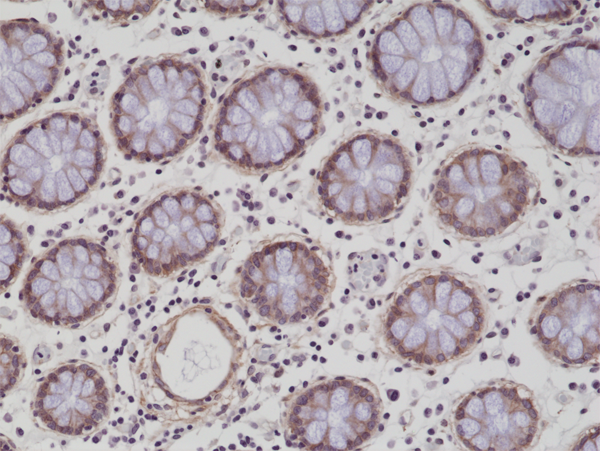
The CD29 Antibody (Rabbit Monoclonal) is a high-performance, highly specific antibody developed for the detection of CD29, also known as integrin β1, a transmembrane receptor critical for cell adhesion, migration, signal transduction, and tissue remodeling. CD29 is widely expressed on various cell types, including epithelial cells, fibroblasts, and immune cells, and forms heterodimers with different alpha integrin subunits to mediate interactions with the extracellular matrix. It plays a central role in physiological processes like embryonic development, wound healing, and immune cell trafficking, as well as in pathological conditions such as tumor progression, metastasis, and fibrotic diseases. This rabbit monoclonal antibody offers superior binding affinity and high specificity compared to conventional mouse antibodies, ensuring robust and reproducible results across a variety of applications. It has been extensively validated for immunohistochemistry (IHC) on formalin-fixed paraffin-embedded (FFPE) tissues, flow cytometry, and immunofluorescence (IF), providing clear, membranous and cytoplasmic staining with minimal background. The CD29 Rabbit Monoclonal Antibody is a powerful tool for researchers studying cell adhesion pathways, integrin-mediated signaling, tumor microenvironment interactions, and tissue regeneration. Its high sensitivity and versatility make it ideal for both basic research and translational studies in fields such as cancer biology, immunology, and regenerative medicine.
RM285
RM285 reacts to human CD29 (Integrin beta-1).
A peptide corresponding to the residues in human CD29 (Integrin beta-1).
Immunohistochemistry (IHC) Western Blot (WB)
Human
None
Research Use Only
Stable for 1 Year at -20.0°C from date of receipt.